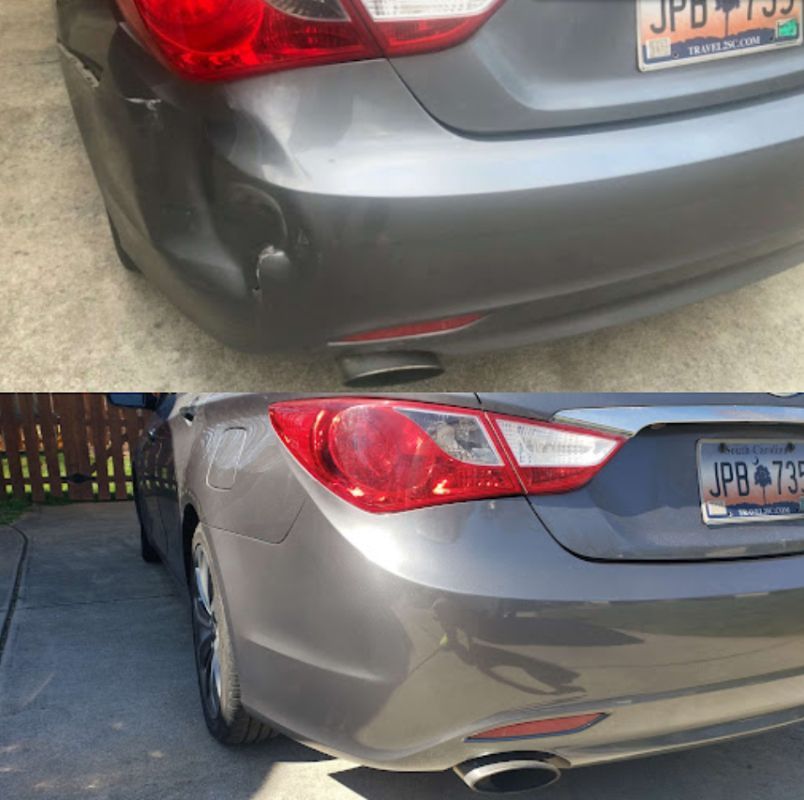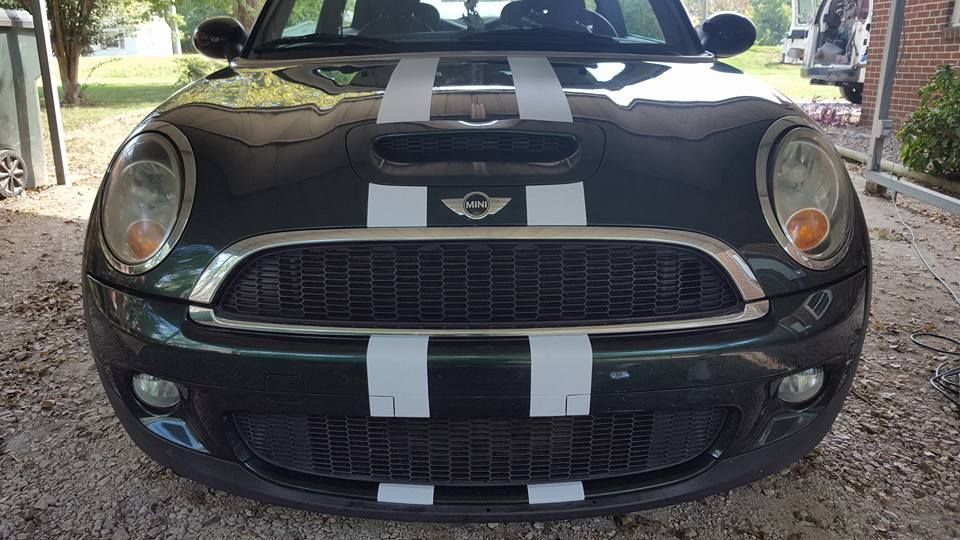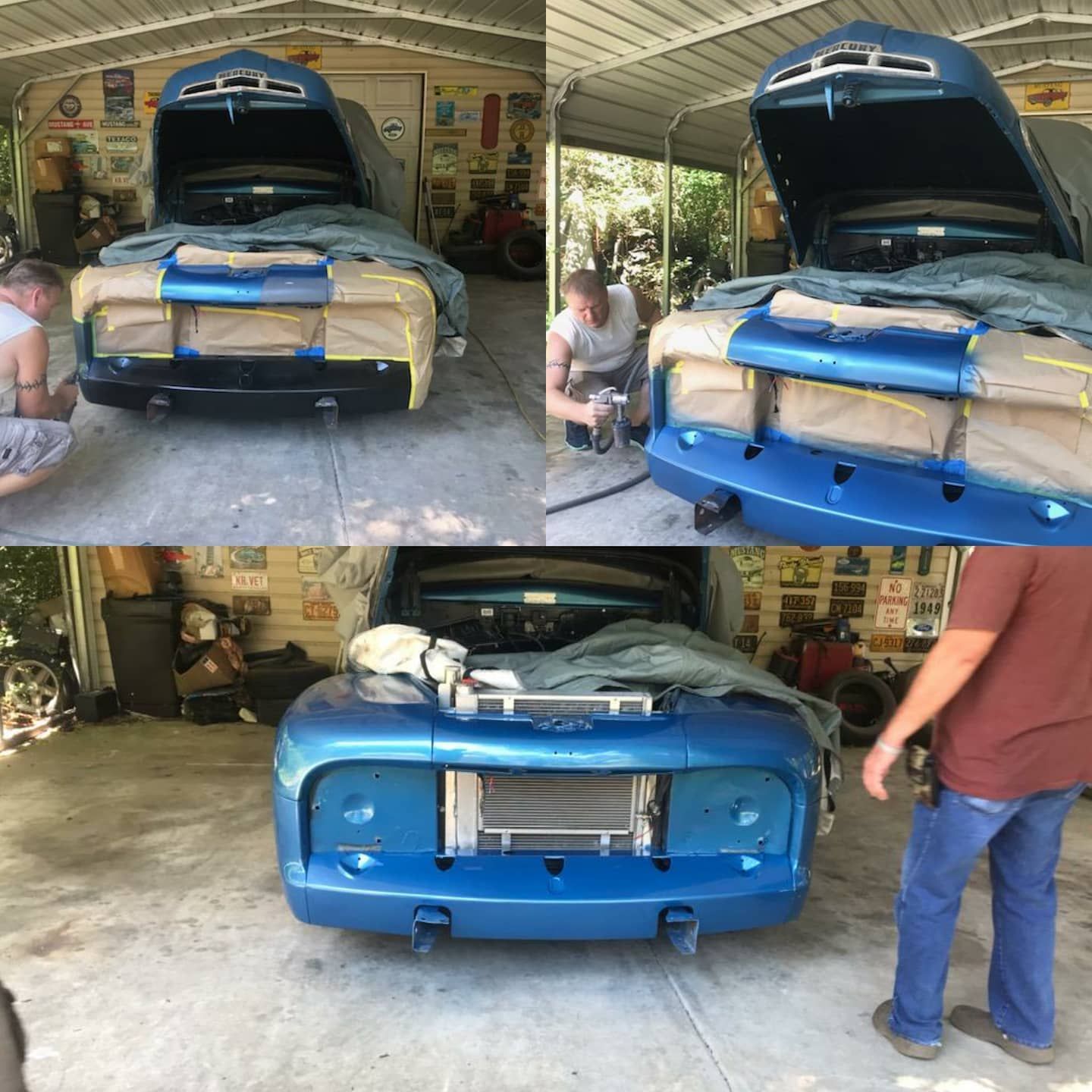
Is It Cheaper to Repair or Replace Damaged Auto Body Parts?
When your car gets damaged, you might wonder whether it’s cheaper to repair or replace the damaged parts.
Each option has its own costs. Sometimes, a repair can be quick and inexpensive. Other times, replacing a part makes more sense.
In this blog, we’ll go over the costs and factors to help you decide which option is better for your car and your wallet.
Factors to Consider When Deciding to Repair or Replace Auto Body Parts
Deciding whether to repair or replace damaged auto body parts depends on several factors. One of the biggest considerations is the extent of the damage. Minor dents or scratches can usually be repaired quickly and at a lower cost. But if the damage is severe, like a crushed fender or broken panels, replacement might be necessary.
Another factor is the type of car you have. Some older vehicles may not be worth the cost of replacement parts, especially if the car’s value has depreciated. On the other hand, newer or more expensive vehicles might benefit from replacement to maintain their resale value.
Safety is also a key consideration. If the damage affects essential safety features, like airbags or structural integrity, replacing the parts is often the better option. Always prioritize safety when making your decision.
You’ll also want to think about the cost of labor. Repairs can often be labor-intensive, leading to high costs, even if the part itself is inexpensive. In contrast, replacement may take less time and effort, depending on the part and damage.
Lastly, consider your insurance coverage. Depending on your policy, your insurer might cover repairs but not replacements, or vice versa. It’s important to understand your coverage limits before deciding.
Cost to Repair Auto Body Parts
The cost to repair auto body parts can vary widely based on the type of damage and the specific part of the vehicle that’s affected. Minor repairs, like fixing dents or scratches, typically range from $50 to $1,500 depending on the severity and location of the damage.
For example, repairing a small dent in a car door could be on the lower end, while fixing more significant damage, like a deep scratch across multiple panels, could be much higher.
Labor costs also play a big role. Body shops often charge between $50 and $150 per hour, depending on the region and the complexity of the repair. The more extensive the damage, the longer the repair takes, which drives up the cost.
In some cases, repair costs can approach or even exceed the cost of replacement. This is especially true for complex repairs that require custom work or specialized equipment. Before committing to a repair, it’s a good idea to get an estimate from multiple shops to ensure you’re getting the best price.
Cost to Replace Auto Body Parts
Replacing auto body parts can often be more expensive than repairs, but it depends on the part and the extent of the damage. The cost of replacement parts varies widely based on the make, model, and year of your car. For example, replacing a bumper might cost between $500 and $2,000, depending on whether you need a basic part or one with sensors or other advanced features.
Labor costs are also a factor, though they can sometimes be lower for replacements than for complex repairs. For instance, swapping out a damaged fender might take less time than repairing it, resulting in lower labor charges.
Another thing to consider is whether to use OEM (Original Equipment Manufacturer) parts or aftermarket parts. OEM parts are usually more expensive but are made by the car’s manufacturer, so they tend to fit and function exactly like the originals. Aftermarket parts are cheaper but can vary in quality and fit.
In some cases, replacement is the better long-term solution, especially if the damage is severe. Replacing a part can restore the car to its original condition, which might be important for maintaining the vehicle’s resale value.
When Is It Better to Repair?
Repairing auto body parts is often the better option when the damage is minor and doesn’t affect the car’s overall safety or function. For example, small dents, scratches, and minor cosmetic damage can usually be fixed without replacing the entire part. Repairing can also be more cost-effective, especially if the part is expensive to replace or if labor costs are relatively low.
Repairing is a good choice for older cars, where the cost of replacement might outweigh the car’s value. In these cases, fixing the existing part can extend the life of the vehicle without a large financial investment.
If the damage is confined to a small area and doesn’t compromise the car’s structural integrity, a repair is usually the most practical solution. In short, if the damage is purely cosmetic or doesn’t affect the car’s function, repair is likely the better, more affordable option.
When Is It Better to Replace?
Replacing auto body parts is usually the better option when the damage is extensive or affects the car’s safety. For example, if the structural integrity of the vehicle is compromised, replacing the damaged part is essential. This is often the case with damage to critical components like the frame, crumple zones, or safety systems like airbags.
Replacement is also advisable for newer or higher-value cars where maintaining the vehicle’s condition is important for resale value. If the damage significantly reduces the car’s appearance or function, replacing the part can help restore the vehicle to its original state, preserving its value.
In some cases, the cost of repairs can approach or even exceed the cost of replacement. When that happens, replacing the damaged part can be more cost-effective in the long run. If repairs are likely to be temporary or might not fully restore the part, replacement is often the better long-term solution.
Comparing the Long-Term Costs: Repair vs Replace
When deciding between repairing or replacing auto body parts, it’s important to think about the long-term costs. Repairs might seem cheaper upfront, but if the damage is severe, you could end up paying more in the long run. For example, a repaired bumper might look fine now, but if it wasn’t fixed properly, you might need more repairs later, which adds to the overall cost.
On the other hand, replacing parts often costs more initially, but it can save you money down the road. New parts tend to last longer and may reduce the likelihood of future issues. Additionally, replacement parts can help maintain your car’s resale value, which could make the higher upfront cost worth it.
In some cases, the decision to repair or replace might come down to how long you plan to keep the car. If you’re planning to sell or trade it in soon, repairing might make sense to avoid a big investment. But if you plan to keep the car for a while, replacement could be the smarter financial move.
Impact on Resale Value: Repair vs Replacement
The decision to repair or replace damaged auto body parts can also impact your car’s resale value. Buyers tend to prefer vehicles with parts that have been replaced rather than repaired, especially when it comes to critical areas like bumpers, panels, and safety features. A well-done replacement can restore the car to near-original condition, making it more attractive to potential buyers.
On the other hand, repairs can sometimes be less visible, especially if the work was done by a skilled technician. However, repairs may raise questions for buyers about the car’s history and long-term reliability, which can lower its resale value.
If maintaining your car's resale value is a priority, it’s often worth considering replacement over repair. Replacing damaged parts with new ones can give buyers confidence that the car is in good condition, which could result in a higher selling price when the time comes.
How to Decide: Repair or Replace? (Decision Checklist)
When you're unsure whether to repair or replace damaged auto body parts, use this simple checklist to help guide your decision:
Extent of Damage
Is the damage minor (dents, scratches) or major (structural damage)?
- Minor: Repair may be sufficient.
- Major: Replacement might be necessary.
Safety
Does the damage affect the car’s safety systems (airbags, crumple zones)?
- Yes: Prioritize replacement for safety.
- No: Consider repair if the damage is cosmetic.
Cost Comparison
How do the costs of repair vs. replacement compare?
- Repair is cheaper: Go with the repair.
- Replacement is close in cost: Consider replacing for long-term value.
Insurance Coverage
What does your insurance cover?
- Covers repair: Opt for repair if it’s cost-effective.
- Covers replacement: Replacement could be a better investment.
Resale Value
Do you plan to sell or trade in your car soon?
- Yes: Replacing might preserve or boost resale value.
- No: Repairing could save money if you’re keeping the car long-term.
By going through this checklist, you can make a more informed decision based on your specific situation.
Conclusion
Deciding whether to repair or replace damaged auto body parts can depend on various factors like the extent of the damage, cost, safety, and your future plans for the vehicle. Repairs are often a good choice for minor cosmetic damage or when you're looking to save money upfront. On the other hand, replacement can provide better long-term value, especially when safety or resale value is at stake.
Before making your decision, consider getting a few estimates from reputable body shops. Weigh the costs and benefits carefully to choose the option that best fits your needs and budget.
If you’re in Rock Hill, SC, Lake Wylie, SC, Fort Mill, SC, or Charlotte, NC, and need professional auto body services, contact Mobile Brewer. They specialize in
Auto Body Work, Bed Liners, Auto Detailing, Odor Removal, Auto Body Repair, and Headlight Restoration. Whether your car needs a quick touch-up or a complete overhaul, Mobile Brewer offers reliable and expert services to get your vehicle back on the road looking its best.


